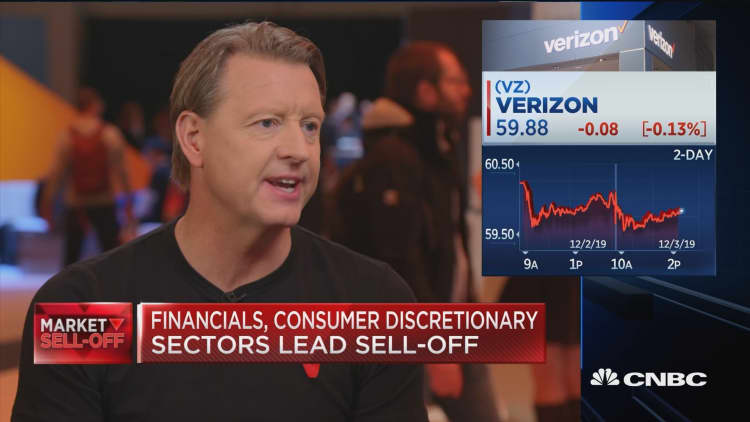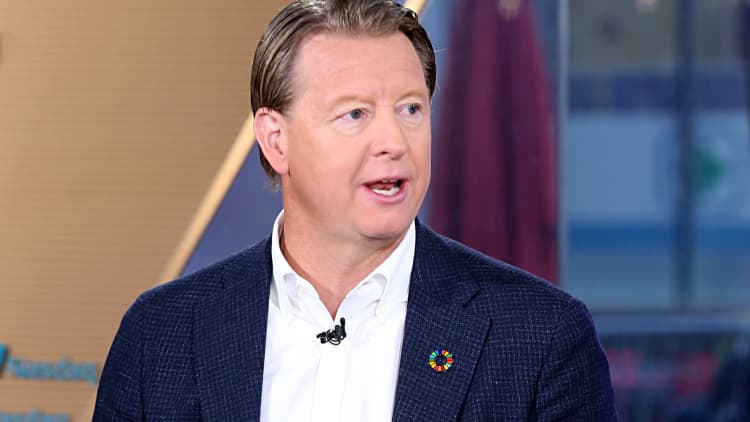
Verizon CEO Hans Vestberg told CNBC on Tuesday that he does not want geopolitical tensions around 5G technology to become further inflamed.
Asked whether he thought the fight between the U.S. and Chinese tech giant Huawei could result in a so-called 5G cold war, creating a fractured global network, Vestberg said, "I hope not."
"Because one of the beauties of this industry is that we've done standardization, which means that you can bring your phone from whichever country you're in and go to another country and it works," Vestberg told CNBC's Jon Fortt on "Power Lunch."
"That has been the most accessible technology in the world," Vestberg added.
Vestberg's followed the announcement Tuesday that Verizon was partnering with Amazon Web Services to incorporate AWS' WaveLength technology into parts of its wireless network.
5G is a next-generation mobile network that promises fast data speeds and other capabilities to support emerging technologies such as self-driving cars.
Products from Huawei, the world's largest telecom equipment maker, are used by 45 of the world's 50 largest phone carriers, according to The Associated Press.
But earlier this year, the U.S. blacklisted Huawei, and prevented it from doing businesses with American companies — though it has been granted reprieves.
And on Friday, Reuters reported that the Trump administration is considering expanding its power to prevent Huawei from receiving additional overseas shipments of products with U.S. technology. Reuters reported that the potential move is because the blacklist hasn't been as effective as hoped.
The back-and-forth was intensified Monday, when Huawei founder Ren Zhengfei said the company plans to relocate its research center from the U.S. to Canada.
U.S. officials accuse Huawei of being a national security risk, alleging its equipment could facilitate the transfer of data to the Chinese government, which has embraced 5G faster than other countries. Huawei has consistently denied the allegations.
Huawei technology has been used around the world as countries race to build out their 5G networks. Other countries such as Australia have cracked down on Huawei.
Vestberg said the thought of there being distinct 5G networks — one that is compatible with Chinese technology and one in the U.S. that is not — would be problematic.
"Hopefully people understand that this is an industry that actually shares their patents, they share their innovation in order to get so many people as possible on earth to use this technology," he said, adding that significant problems around the world such as access to health care and education can be partly solved through mobile phones.
"So hopefully not," he said.



